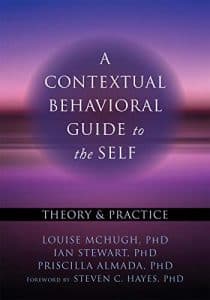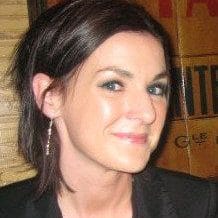Transcend your ‘self’ with the precision of Relational Frame Theory (RFT)
 RFT underpins and expands Acceptance and Commitment Therapy
RFT underpins and expands Acceptance and Commitment Therapy
with Louise McHugh PhD, Lead author of Amazon’s Psychotherapy Division best seller ‘The Contextual Behavioural Guide to the Self’.
£215.00
Timing:
9.30am for a 10:00am start to 5:00pm (coffee at 9:30am)
Location:
Canonbury, London
CPD Value:
14 hours
Certificate of attendance:
Provided
Entry requirements:
This training does not require prior academic knowledge or accreditation to a particular body. We expect you to have a professional context in which facilitating behaviour change is a focus. This can be in a mental health or work/business setting.
About the course
Did you ever feel it wasn’t OK to be you, just as you are? Do you often see yourself in a particular light, whether positive or negative? The most important relationship any individual has is with themselves as it underlie all others. Any wounds or fixed ways of seeing yourself will hinder your relationships with others. A healthy flexible self is almost universally seen as a prerequisite for sound mental functioning.
When we do this work, one key aim is to help the client to be at peace with themselves, and let go of rigid ideas of who they are. In this workshop you will learn the latest from Louise on how we get caught up in our ‘selves’ and practices for disentangling ourselves from such behaviour. Louise will introduce how Relational Frame Theory informs therapeutic techniques to foster self variability, flexibility, stability, functional coherence and an ongoing sense of responsibility.
We will help you to address self-concept issues by fostering:
1. Variability in the process of awareness
This can involve stabilizing the clients perspective, (e.g., repeatedly directing the client’s attention to the present, so as to help her notice the changes in her experiences. How do you feel now, and now and now?) Or getting the client to notice changes in perspective, (e.g., recall different situations and moments of your life).
2. Stability in a sense of perspective
This can involve noticing the common perspective across experiences (e.g., who is noticing thoughts, sensations and feelings across a variety of experiences, and noticing the common perspective across points of view (e.g., notice who is noticing the experiences of you today, yesterday, in a years time).
3. Coherence in context
This can involve emphasising the hierarchical dimension of self (e.g., you are the container of all your experiences) and emphasising the distinction between self and the experiences (i.e., separate experience from the action). Anything you contain is not you.
4. The ability to respond differently to an interaction
This can be achieved by pointing out the influence of context on our actions (e.g., given your history it is not surprising that you made these choices) and bringing attention toward the impact of our actions on the contextual variables (and now with this knowledge what can you do that is in line with what matters to you?).
About the trainer

Dr Louise McHugh
BSc MA PhD
Louise's research interests are centered on the experimental analysis of language and cognition from a behaviour analytic and Relational Frame Theory perspective, including especially the development of complex cognitive skills such as as perspective-taking and the process-level investigation of behavioural and cognitive psychotherapies including Acceptance and Commitment Therapy. She has published over 60 papers on these topics and has received funding from several sources including the British Academy, the Leverhulme Trust, the Waterloo Trust and the Welsh Assembly. Most recently she was awarded a European Marie Curie career integration award to join the faculty at UCD.
A faculty member at University College Dublin (UCD) in Ireland, Louise McHugh is not only a world authority on RFT (Relational Frame Theory – the theory of language and cognition that underlies ACT) but also a dynamic and entertaining presenter. Louise is editor and co-author of the newly published textbook ‘The Self And Perspective Taking’, and her ground-breaking work in the use of RFT to help autistic children develop theory of mind and empathy is now being employed by state-of-the-art ABA programs around the world.